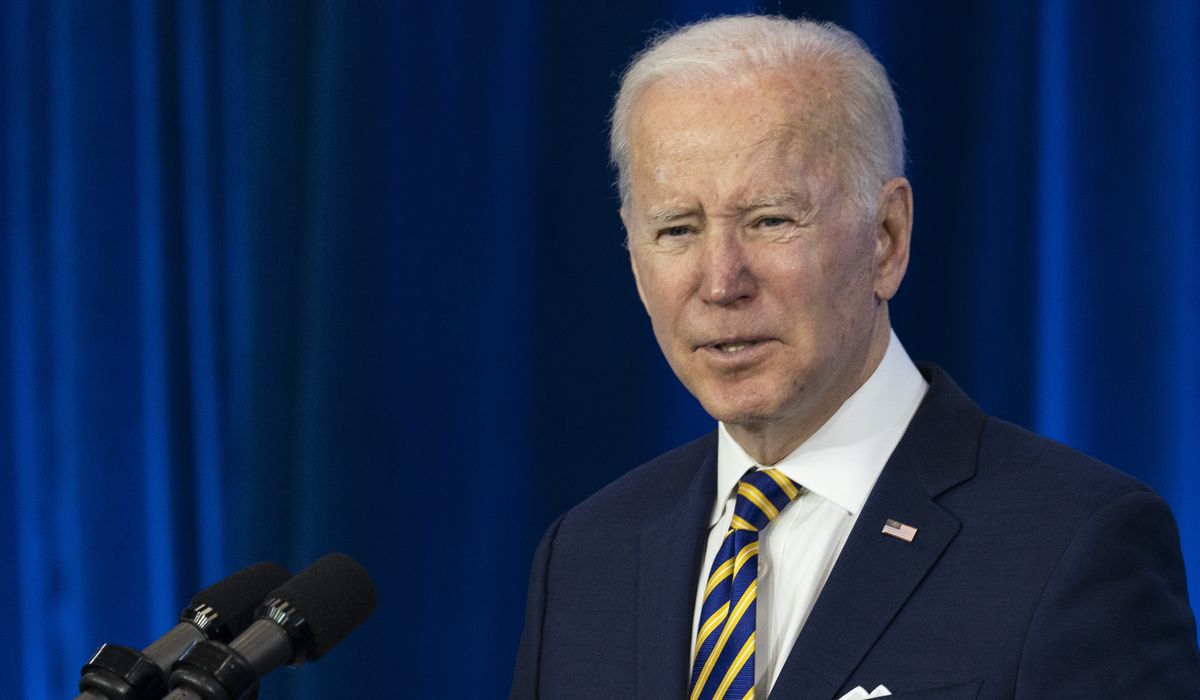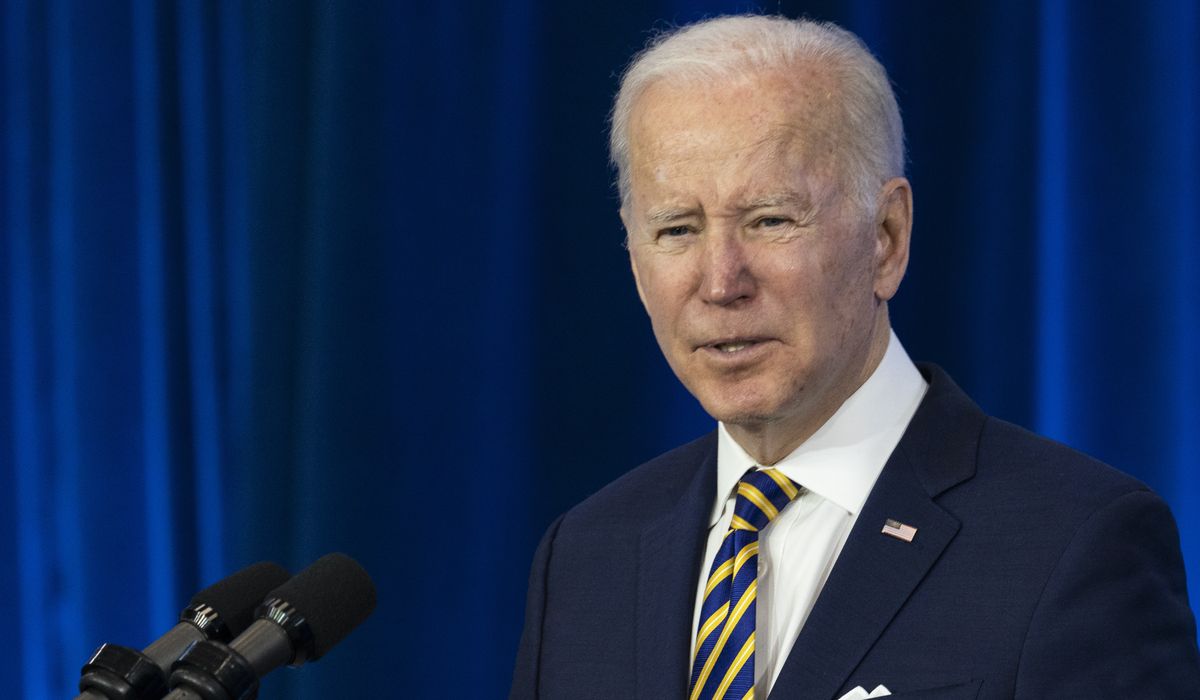
Polls show President Biden is losing the support of independent voters, a trend that could make it more difficult for Democrats to hold on to their majorities in the House and Senate.
Mr. Biden’s support among independent voters has been shrinking for months, and an SSRS poll conducted for CNN is the latest measure of his declining popularity among this crucial voting bloc.
Mr. Biden’s approval rating among independents sank from as high as 58% last spring to 36%, the Feb. 10 survey found.
The president’s approval rating overall has been declining for weeks, but the loss of independents is particularly dangerous for Democrats, who face challenges to their congressional majorities in November elections.
“Biden’s steep decline among independents goes to the core of his political problem,” Ron Faucheux, a pollster and nonpartisan political analyst, told The Washington Times.
The polls show voters, including independents, soured on Mr. Biden because of his handling of the economy, foreign policy and the unrelenting COVID-19 pandemic.
Independents powered the 2020 election results, Mr. Faucheux said. After backing Donald Trump in 2016, they abandoned him and chose Mr. Biden by a 54% to 41% margin.
They also will play a pivotal role in the midterm elections.
In at least nine states, registered independents outnumber Democrats and Republicans. Gallup reported last month that 4 in 10 Americans identified themselves as independents in 2021.
“History tells us that any president’s low numbers can have a negative ripple effect through same-party candidates in midterms,” said Tim Malloy, an analyst for the Quinnipiac University Poll. “The independents wield huge influence in turbulent times, which we are in now, so laser focus by both parties is on that slice of the electorate.”
Democrats will have to reverse a trend with independents that has worsened since the summer. Mr. Biden’s poll numbers began to fall after his widely criticized withdrawal of U.S. troops from Afghanistan.
A Harvard CAPS-Harris Poll released in late January found that 57% of those who identified as independents said they would more likely vote for a Republican candidate in the midterm elections, and 43% said they would choose a Democrat.
The Republican advantage among independents could become critical in House and Senate races where the Republicans and Democratic electorates are closely divided.
In Arizona, Democrat Mark Kelly’s bid to hold on to his Senate seat against a Republican challenger has been rated a toss-up by the nonpartisan Cook Political Report. Independents make up nearly 32% of the state’s registered voters, according to the Independent Voter Project.
IVP reported that registered Democrats make up 32.4% and Republicans constitute 34.8% of all registered voters in the state.
In January, Mr. Biden told reporters that he does not believe poll numbers showing his plummeting approval ratings. Fellow Democrats say the numbers don’t matter nine months before the election.
“That’s an eternity in politics,” Democratic Party strategist Christopher Hahn said in an interview.
Events could push more independents back into Biden’s corner, Mr. Hahn said, especially if they are motivated by a significant event such as a Supreme Court ruling overturning the law legalizing abortion.
“Democrats should be concerned,” Mr. Hahn said of the poll numbers. “But now is not the time to panic.”








